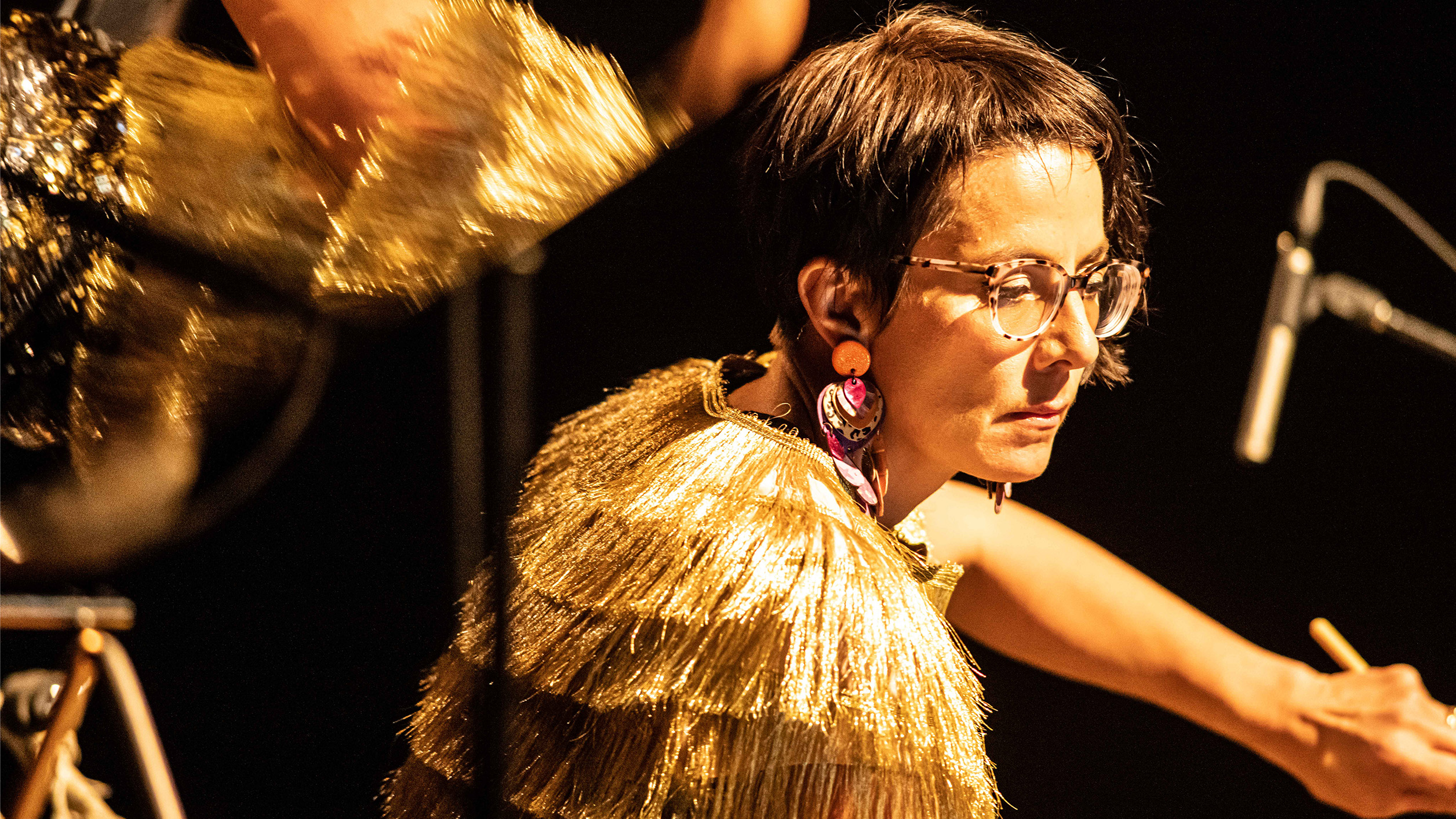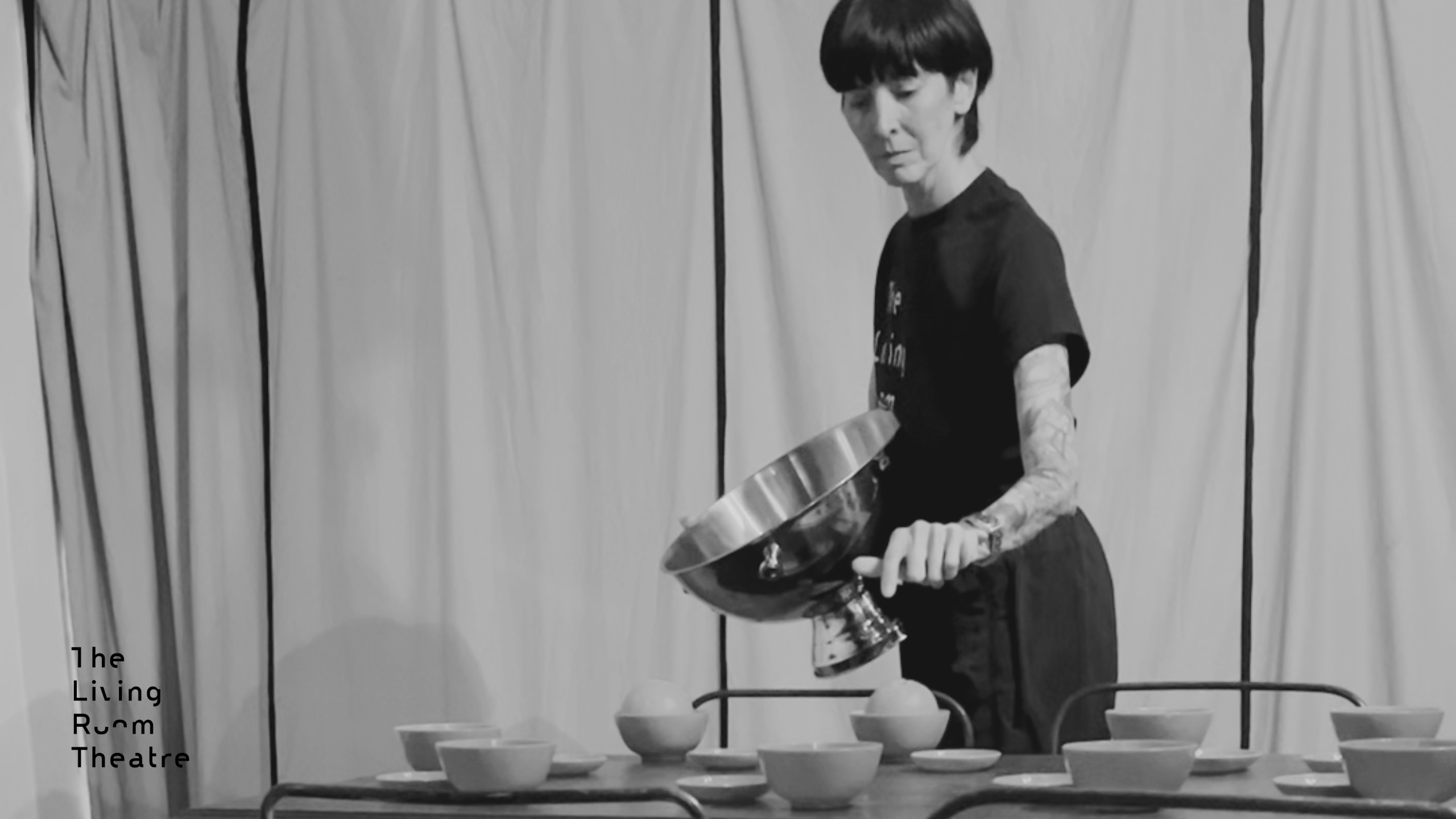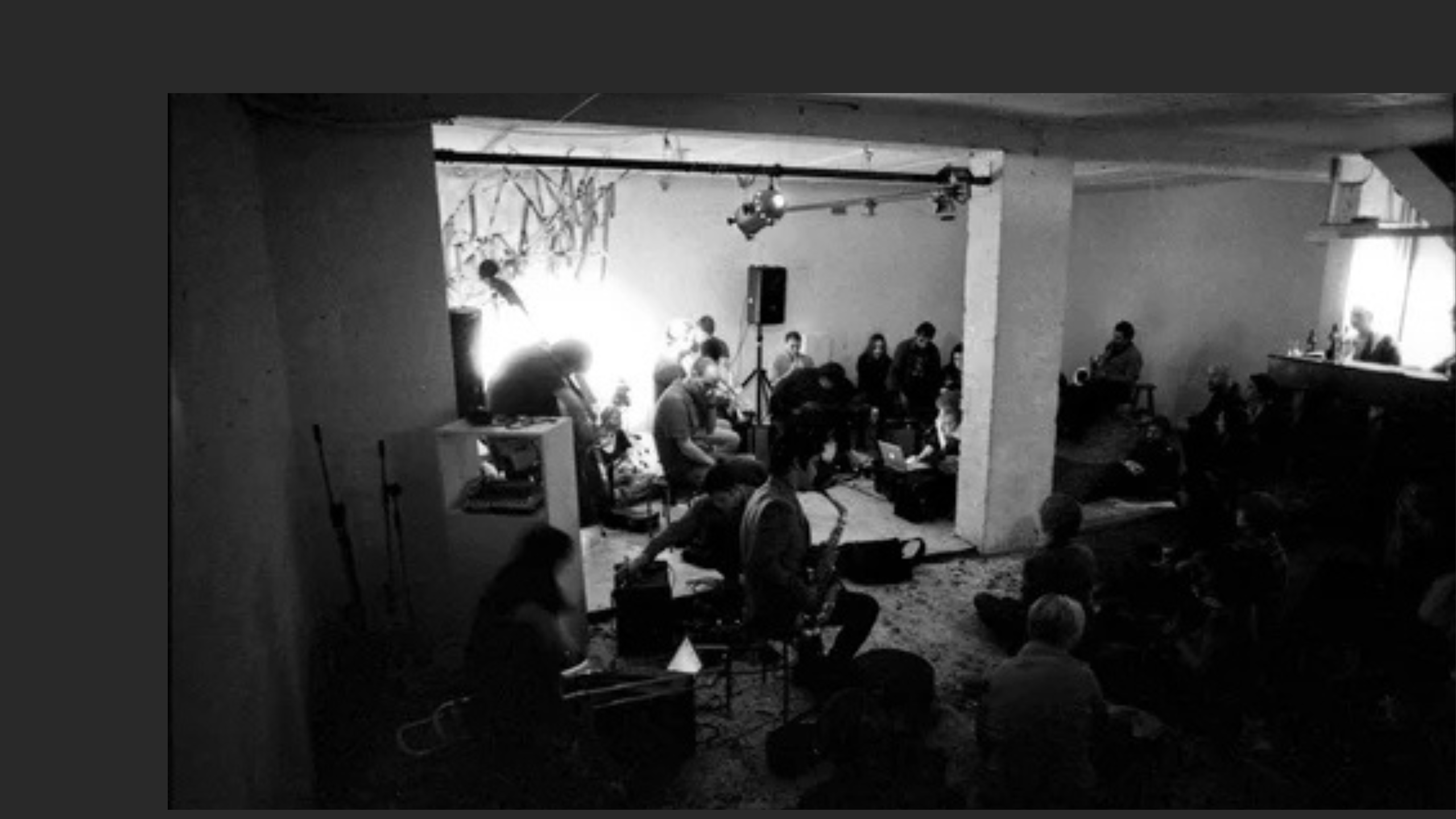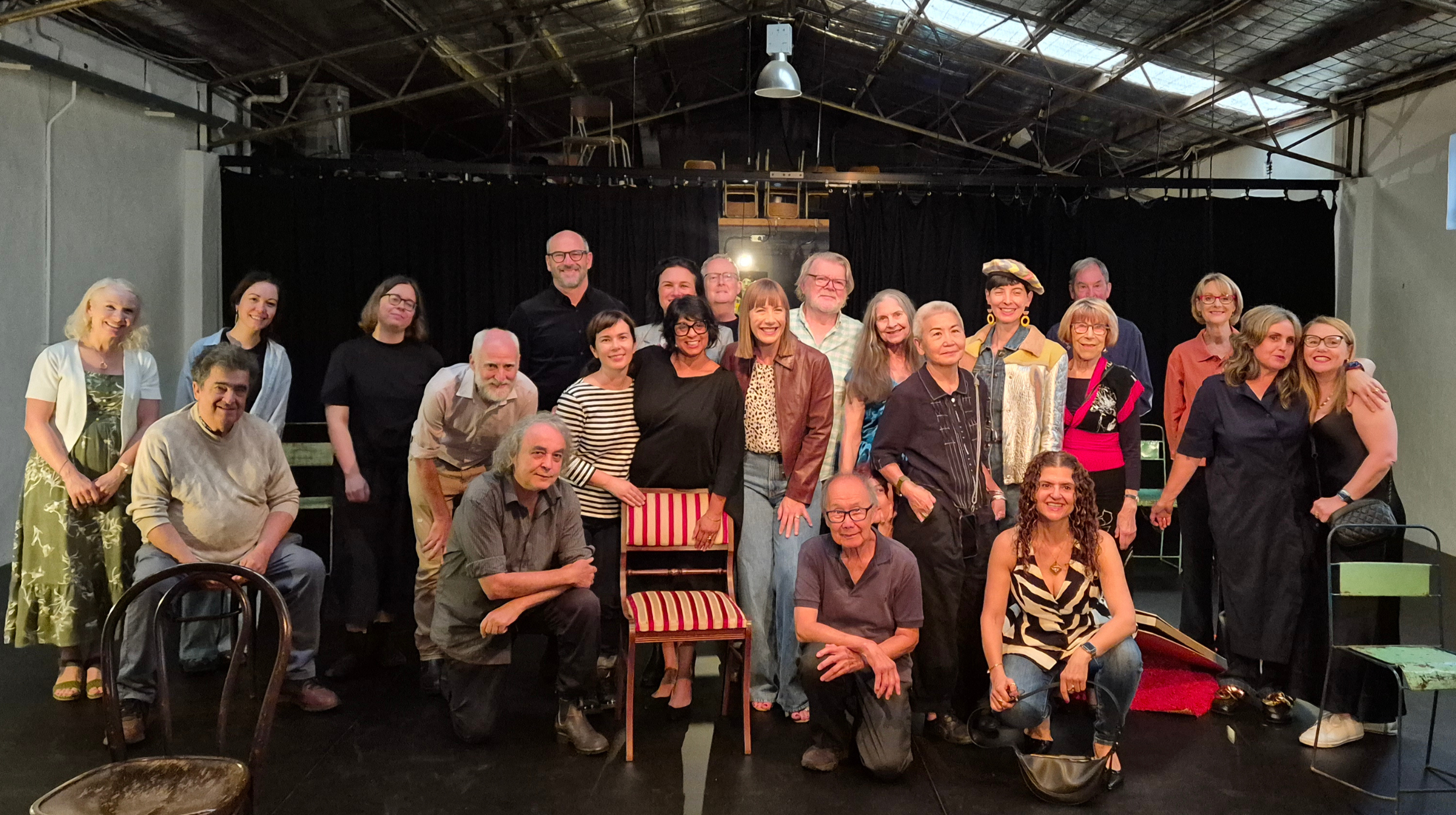
Female Artistic Directors / Lone but not alone
24.10.2019
This Thursday 7 November, Ensemble Offspring returns to Carriageworks for the second instalment of Lone Hemispheres. Lead by EO Artistic Director Claire Edwardes and inspired by the Italian avant-garde, a selection of virtuosic solo instrumentalists will perform sonic landscapes drawn from Berio and Donatoni inside the atmospheric world created by LRT’s Artistic Director Michelle St Anne.
Michelle’s vision, inspired by the celestial landscapes of Indigenous Australian astronomers and Warwick Thornton’s award winning film We Don’t Need A Map, sees the interface between audience and performer challenged and blurred, situating meaning and experience in the absence of space and sound as much as within it.
As Ensemble Offspring and The Living Room Theatre celebrate 25 and 20 years of practice respectively, this collaboration sees the pioneering visions of two female Artistic Directors intertwining.
Here, Claire sits down with the LRT to speak about the parallel histories between herself and Michelle in developing and leading experimental performance and practice in a male dominated cultural landscape.
LRT: Can you tell us how you came to program Lone Hemispheres and what you have considered putting this program together?
Claire: We presented Lone Hemispheres for the first time at Carriageworks last year in 2018 . It was a Xenakis focus program that year but at its essence the same concept applied. Three soloists all performing 20th century classics of their repertoire alongside new Australian works inspired by those works. Last year the classics were by cult mathematician, architect and composer Iannis Xenakis and this year they are by Luciano Berio and Franco Donatoni – two icons of the Italian avant-garde who are equally revered within our music scene today. Being a chamber ensemble it’s not often that we get to feature our musicians as soloists and we had such great feedback last year on the concept (read: sold out) that we can’t wait to do it again!
What inspired you to include a theatrical artist in this event and what do you find most interesting in this collaboration? Especially given that you had only seen Michelle’s theatrical concepts via floorplan?
There is so much freedom when presenting a concert with just three soloist instrumentalists in a blank canvas warehouse style space such as Carriageworks. I am the musician on stage who is limited by my instrument (the vibraphone) and I am therefore stationary – but the other two can move about so there is a huge amount of freedom in terms of staging. Michelle came on board for Kontiki Racket, our recent festival at Paddington Town Hall and having the opportunity to work with her again so soon is such a blessing. Michelle is so inspired by the music we champion and finding collaborators outside of music who are just as passionate as us about this music and how to disseminate it in fun, engaging and interesting ways is a true find. From the discussions we’ve had thus far I get the feeling it’s going to be a pretty special event thanks to Michelle – even by Ensemble Offspring standards.
How did you find the transition from co-artistic director to single directorship? Has your vision for Ensemble Offspring changed?
Aside from the general feeling of financial and managerial responsibility which was suddenly solely on my shoulders, I have to say I have relished the autonomy and singularity of vision that being solo artistic director affords me. I still miss Damien terribly, especially when I am confused about a particular direction or artistic decision I have to make, but I have learnt so much since taking over the reins in January 2016. Our team has grown hugely in that time – from a single General Manager to 4 staff. Leading this team keeps me on my toes. It’s really challenging but also really exciting and I appreciate so very much this opportunity to push myself and grow as a person. And musically, having this company which is going from strength to strength is also just such an honour. I have the board and musicians behind me too and on days where everything is going well (and we haven’t just found out we didn’t get a grant or something) I feel like the luckiest girl in the world.
Ensemble Offspring turns 25 next year! After so long in the industry, what shifts would you like to see happen?
Well EO has championed gender equity in concert programming very strongly in the last few years and I am proud to say that times have really changed already, within that period. I believe we played a solid part in that here in Australia and will continue to do so. Into the future as well as equity for female identifying composers I’d like to see more culturally diverse programming and to that end we are supporting Indigenous composers to help empower them artistically and in terms of opportunities afforded to them. As artists we need to constantly question what we do and why. It is not enough to sit on ones laurels. And I feel that Ensemble Offspring has a role to play into the future especially to lead by example and create conversation around this issue. So that the more classically oriented institutions (and audiences for that matter) understand the relevance of living music by living composers and how it is that which drives culture in the here and now – and not music by dead white males. But don’t get me started on that…we could be here all night!


